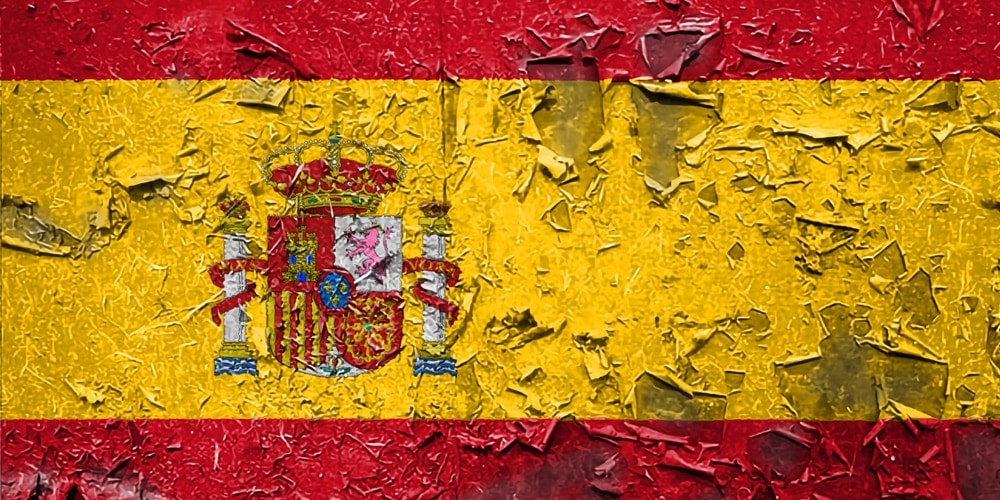
When young I devoured Ernest Hemingway’s For Whom the Bell Tolls, his novel about an American volunteer fighting fascists in the Spanish Civil War. Though it was decades ago, another epoch, the early 1970s (I was a teenager), I still remember loving the story.
I recently read Adam Hochschild’s Spain in our Hearts: Americans in the Spanish Civil War, 1936-1939—an enthralling true account of young Americans who wanted to save the world, or at least Spain, from fascism.
Who were these idealistic men and women who sailed across the sea to fight on soil that most had never seen before and who (at least some) would never leave alive? Having watched fascism seize Italy, with Mussolini, and Germany, with Hitler, they wanted to stop it in Spain, with Franco. Many were communists.
Sure, from our futurist perspective (and for people back then, our “now” is the future), who can’t see what a political, moral, and economic catastrophe communism turned out to be? But from the mire of the 1930s the view greatly differed than it does with the 3.8 percent unemployment rate in today’s United States.
The West, especially the United States, was self-immolating in the Great Depression. About 34 million Americans (out of a population of 121 million) lived in households with no wage earners. The stock market lost 90 percent of its value (compared to 25 percent during The Great Recession of 2008). Half the nation’s banks, about 9,000 (compared to 500 in the Great Recession), failed. The Detroit Zoo slaughtered animals in order to feed the hungry. (Who could imagine this today—even in Detroit?) Unemployed and homeless steel workers in Pennsylvania lived with their wives and children in idle coke ovens. Free markets and laissez-faire capitalism, which had worked well for so many, turned around and strangled millions. Karl Marx’s prediction of capitalism’s inevitable demise could almost be heard mocking and bellowing from his tomb in London’s Highgate Cemetery.
Whatever their motives: spreading communism, fighting fascism, both, or simply to find a purpose in their lives by seeking something greater than themselves—about 2,800 Americans from all walks of life risked those lives in Spain. They slowly organized into what became known, idealistically enough, as the Abraham Lincoln Brigade.
Their enemy was Generalissimo Francisco Franco and the Nationalists, who represented, among other things, staunchly Catholic, antisemitic, anti-Protestant wealthy landowners who had been exploiting the poor for centuries. Being backed by Hitler and Mussolini didn’t add to their image, either.
The Abraham Lincoln Brigade consisted of Stalinists, Trotskyites, anti-Stalinist communists, unionists, peasants, and anarchists. (Between 1894 and 1914 the anarchists had killed six heads of state, including United States President William McKinley.) Though sharing a common foe, these factions still hated each other enough so that when not killing Nationalists they killed each other, which helped ensure their defeat.
Their violence was unforgiving as well.
In one area after the Nationalists gained control, they put people on “trial.” Wrote Hochschild: “In one case, 13 people judged subversive, including a 20-year-old woman and the director of a teacher training college—teachers were always suspect—were shot in Teruel’s central square, after which people danced to band music in the victims’ blood. The local bishop, Anselmo Polanco, objected—but only to the dancing.”
Meanwhile, the other side wasn’t sweetness and light, either. Hochschild wrote that the Republicans “targeted in these early months were Nationalist supporters of all sorts: landowners, shopkeepers, businessmen. . . . The Church was seen as a handmaiden of the big employers and landlords, promising abundance in the next world to workers denied their fair share in this one. Altogether, nearly 7,000 clergy were put to death, one of the largest such massacres in modern times.”
And though fascism was defeated in Germany and Italy, it endured in Spain until Franco died in 1975, and the country made an amazing transformation into the thriving democracy it is today.
But what about those idealistic young Americans who gave themselves, not only for a lost cause, but for one (it could be argued) that was wrong? Who thinks Spain would have been better off communist?
The Abraham Lincoln Brigade is, for me, a metaphor for the ultimate futility of all grand human attempts to fix this fallen world. What Christian can forget Jesus’ words about helping the hungry, the thirsty, the poor, the prisoner? “Truly, I tell you, whatever you did for one of the least of these brothers and sisters of mine, you did for me” (Matt. 25:40).But taking care of the needy, even to the point of self-sacrifice, is not the same as attempting to usher in—by war, revolution, subversion, or even democratic politics—some or another millennial utopian cause. Why? Because no matter how grand, or utopian, the cause, humans will corrupt it. (After all, look at what humans have done to Christianity, a “cause” from God, a perfect one, too.)
This present world is a lost cause, anyway. That’s why God isn’t going to revamp or revise it but replace it, and only after incinerating it first. “But the day of the Lord will come like a thief. The heavens will disappear with a roar; the elements will be destroyed by fire, and the earth and everything done in it will be laid bare” (2 Peter 3:10).
Then comes the replacement: “Then I saw a new heaven and a new earth, for the first heaven and the first earth had passed away” (Rev. 21:1), and all human ideologies with them because, like the Abraham Lincoln Brigade, no matter how well-intentioned—they never work.
Clifford Goldstein is editor of the Adult Sabbath School Bible Study Guide. His latest book, Baptizing the Devil: Evolution and the Seduction of Christianity, is available from Pacific Press.